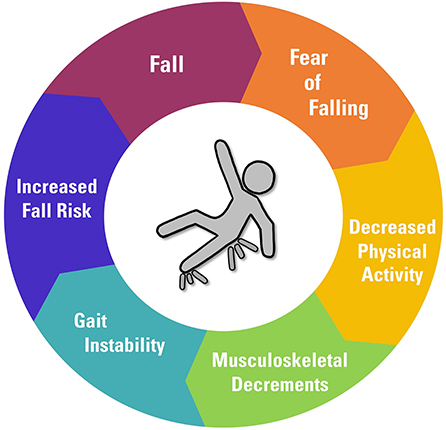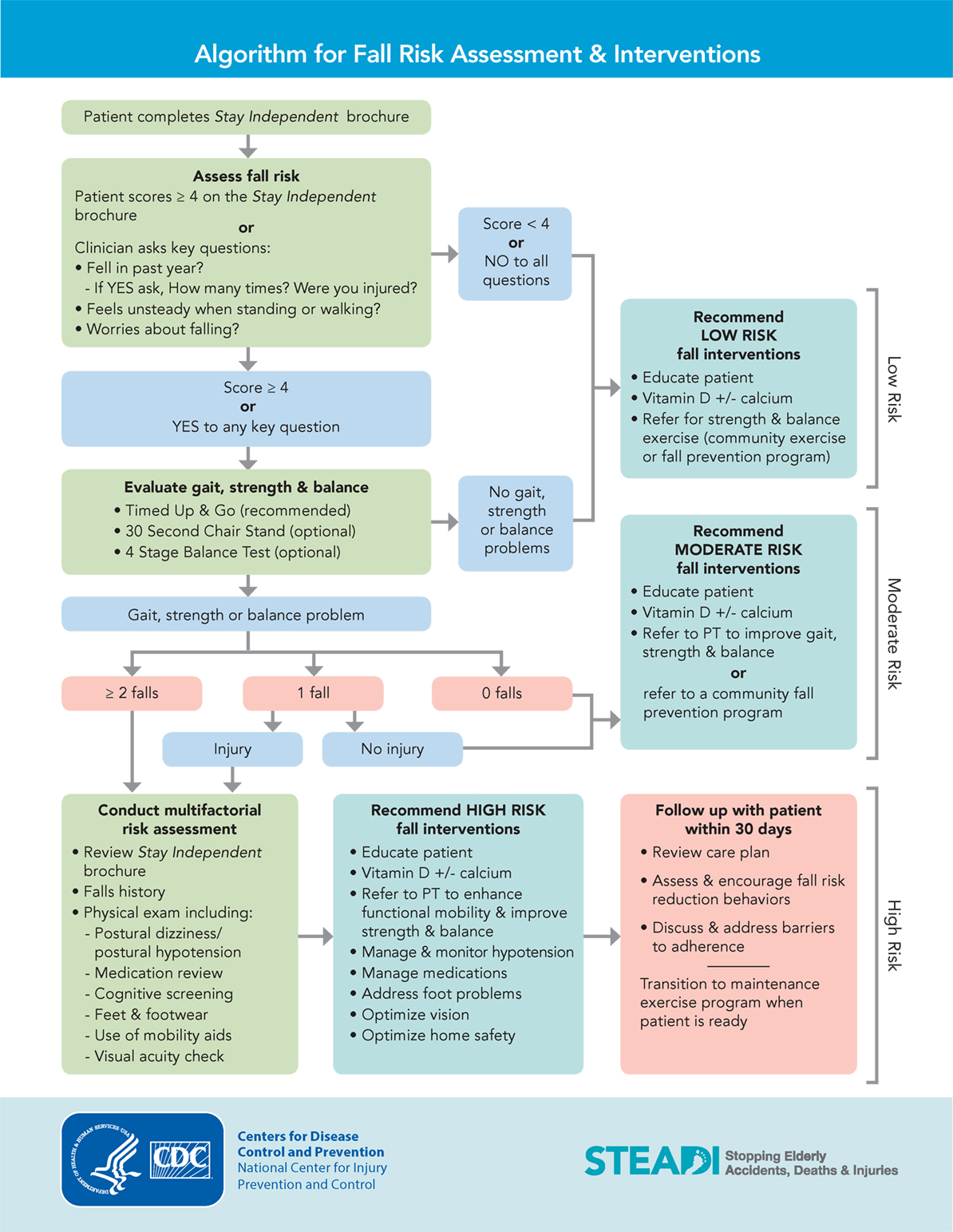Getting The Dementia Fall Risk To Work
Getting The Dementia Fall Risk To Work
Blog Article
Fascination About Dementia Fall Risk
Table of Contents10 Easy Facts About Dementia Fall Risk ShownSee This Report about Dementia Fall RiskDementia Fall Risk - The FactsMore About Dementia Fall RiskDementia Fall Risk - The Facts
The FRAT has 3 areas: fall risk status, danger variable list, and activity strategy. A Fall Threat Status consists of data regarding background of current falls, drugs, psychological and cognitive condition of the person - Dementia Fall Risk.If the client scores on a danger element, the corresponding variety of factors are counted to the client's autumn threat score in the box to the far appropriate. If a person's loss risk rating completes five or higher, the individual goes to high risk for falls. If the person scores just 4 factors or lower, they are still at some risk of falling, and the nurse needs to utilize their best professional analysis to take care of all loss threat elements as part of an all natural treatment strategy.
These common strategies, in basic, aid create a risk-free atmosphere that decreases unexpected falls and defines core safety nets for all clients. Indicators are important for patients in danger for drops. Doctor require to recognize who has the condition, for they are in charge of executing actions to promote individual safety and security and prevent falls.
Our Dementia Fall Risk Ideas
Wristbands must consist of the patient's last and first name, day of birth, and NHS number in the UK. Just red shade should be utilized to signify special patient condition.
Items that are as well much may call for the patient to reach out or ambulate unnecessarily and can possibly be a danger or add to drops. Aids prevent the person from going out of bed with no assistance. Registered nurses reply to fallers' call lights quicker than they do to lights initiated by non-fallers.
Visual impairment can significantly cause falls. Maintaining the beds closer to the flooring decreases the danger of falls and serious injury. Positioning the mattress on the flooring significantly lowers loss threat in some medical care settings.
Rumored Buzz on Dementia Fall Risk
Clients that are high and with weak leg muscle mass that try to rest on the bed from a standing position are most likely to fall onto the bed due to the fact that it's as well low for them to decrease themselves safely. Likewise, if a tall patient attempts to obtain up from a low bed without aid, the client is likely to drop back down onto the bed or miss out on the bed and fall onto the flooring.
They're made to promote prompt rescue, not to stop drops from bed. Distinct alarm systems can likewise advise the patient not to rise alone. Using alarms can likewise be an alternative to physical restraints. Other than bed alarm systems, increased supervision for high-risk people also may help prevent falls.

Individuals with an evasion gait increase loss chances substantially. To lower fall danger, shoes ought to be with a little to no heel, slim soles with slip-resistant tread, and support the ankle joints. Suggest patient to make use of nonskid socks to avoid the feet from moving upon standing. Nevertheless, motivate patients to put on suitable, well-fitting shoesnot nonskid socks for ambulation.
Dementia Fall Risk for Dummies
In a study, homes with appropriate lighting report fewer falls (Ramulu et al., 2021). Improvement in lighting at home may lower read the full info here fall prices in older grownups.

Caretakers are efficient for ensuring a safe and secure, secured, and safe environment. However, researches showed extremely low-certainty proof that caretakers reduce fall risk in severe treatment medical facilities and only moderate-certainty that choices like video clip surveillance can minimize sitter use without boosting autumn risk, recommending that caretakers are not as helpful as initially thought (Greely et al., 2020).
The Only Guide for Dementia Fall Risk

Increased physical fitness decreases the threat for drops and limits injury that is suffered when loss takes place. Land and water-based workout programs may be in a similar way advantageous on balance and gait and consequently lower the risk for falls. Water workout may add a favorable advantage on equilibrium and gait for women 65 years and older.
Chair Surge Workout is a simple sit-to-stand workout that aids enhance the muscular tissues in the thighs and butts and improves wheelchair and self-reliance. The objective is to do Chair Increase exercises without using hands as the client ends up being stronger. See sources section for a comprehensive direction on how to execute Chair Increase exercise.
Report this page